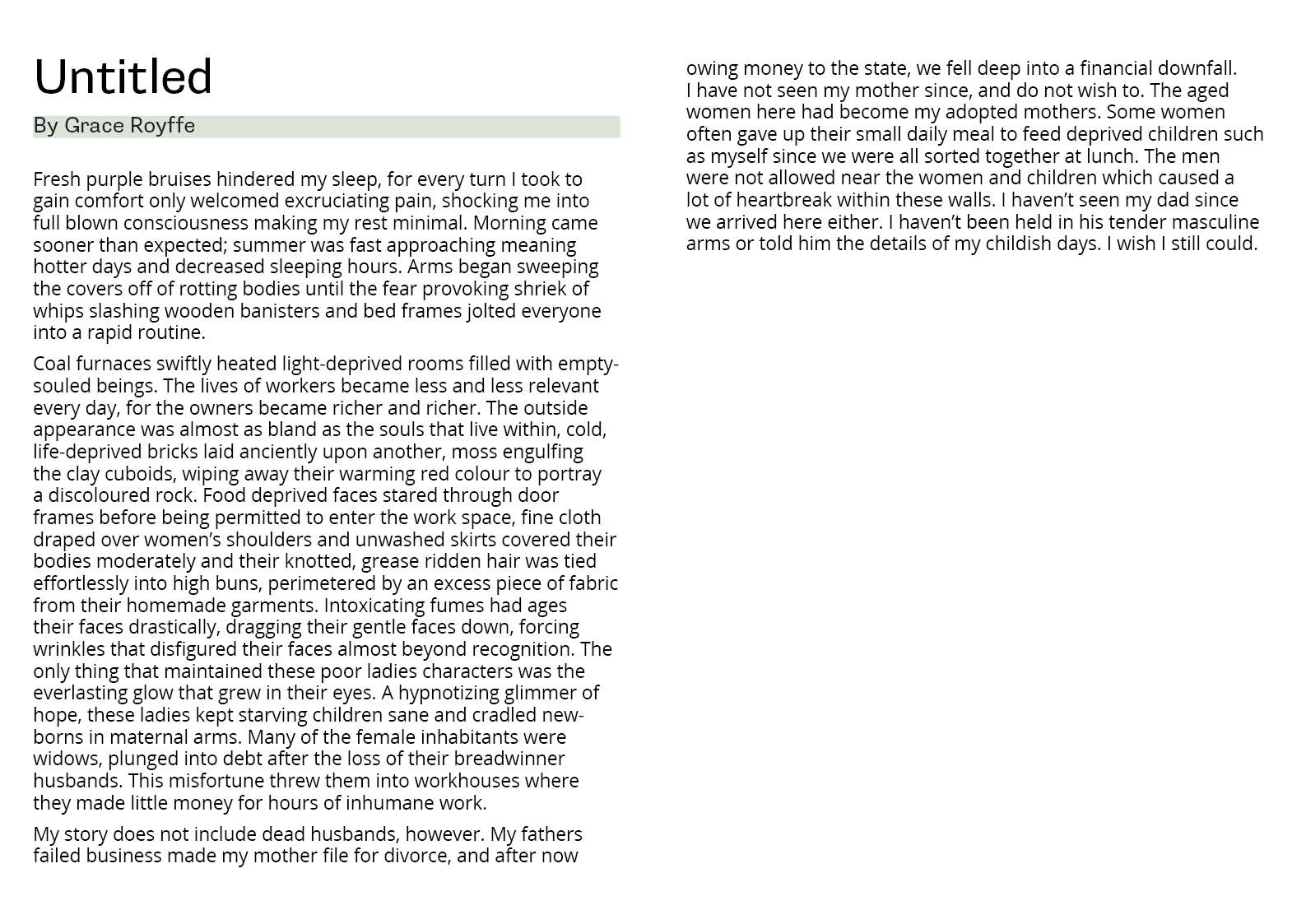
Judge’s Comments – Runner-up
In this one I particularly liked the equation of the soulless building with the soulless inmates. It made me think of Patrick Geddes, a scholar and activist of the Victorian period whose main focus was on providing the extreme poor with beautiful surroundings, which he believed was important for the human spirit to thrive. He pioneered building gardens in Edinburgh specifically so that the children of tenement dwellers could learn horticulture.
Untitled
By Grace Royffe
Fresh purple bruises hindered my sleep, for every turn I took to gain comfort only welcomed excruciating pain, shocking me into full blown consciousness making my rest minimal. Morning came sooner than expected; summer was fast approaching meaning hotter days and decreased sleeping hours. Arms began sweeping the covers off of rotting bodies until the fear provoking shriek of whips slashing wooden banisters and bed frames jolted everyone into a rapid routine.
Coal furnaces swiftly heated light-deprived rooms filled with empty-souled beings. The lives of workers became less and less relevant every day, for the owners became richer and richer. The outside appearance was almost as bland as the souls that live within, cold, life-deprived bricks laid anciently upon another, moss engulfing the clay cuboids, wiping away their warming red colour to portray a discoloured rock. Food deprived faces stared through door frames before being permitted to enter the work space, fine cloth draped over women’s shoulders and unwashed skirts covered their bodies moderately and their knotted, grease ridden hair was tied effortlessly into high buns, perimetered by an excess piece of fabric from their homemade garments. Intoxicating fumes had ages their faces drastically, dragging their gentle faces down, forcing wrinkles that disfigured their faces almost beyond recognition. The only thing that maintained these poor ladies characters was the everlasting glow that grew in their eyes. A hypnotizing glimmer of hope, these ladies kept starving children sane and cradled new-borns in maternal arms. Many of the female inhabitants were widows, plunged into debt after the loss of their breadwinner husbands. This misfortune threw them into workhouses where they made little money for hours of inhumane work.
My story does not include dead husbands, however. My fathers failed business made my mother file for divorce, and after now owing money to the state, we fell deep into a financial downfall. I have not seen my mother since, and do not wish to. The aged women here had become my adopted mothers. Some women often gave up their small daily meal to feed deprived children such as myself since we were all sorted together at lunch. The men were not allowed near the women and children which caused a lot of heartbreak within these walls. I haven’t seen my dad since we arrived here either. I haven’t been held in his tender masculine arms or told him the details of my childish days. I wish I still could.
